Uncategorized
-
 Tech
TechHydrogen made using sunlight, cheap materials
Photosynthesis-inspired fuel cell uses water to make hydrogen gas and could feature in next-generation cars.
By Sam Lemonick -
 Agriculture
AgricultureDrug-resistant staph can cling to farm workers for days
Agricultural exposure to staph bacteria could threaten the health of laborers and people who live near farms, a study of pig farm workers suggests.
By Beth Mole -
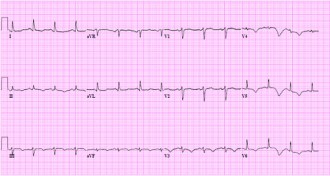 Health & Medicine
Health & MedicineMass EKG screening for athletes inadvisable, panel says
Only athletes with warning signs of cardiac problems should be tested with electrocardiograms, according to the American Heart Association and American College of Cardiology.
By Laura Beil -
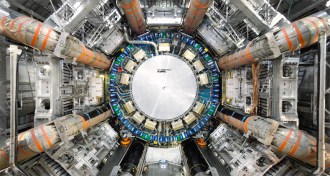 Particle Physics
Particle PhysicsEvidence for new Higgs-related particle fades away
A close look at data from the Large Hadron Collider finds no evidence that the Higgs boson decays into a new, unknown particle.
By Andrew Grant -
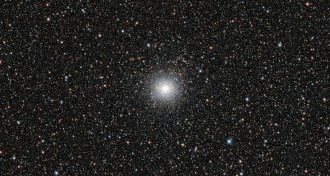 Astronomy
AstronomyMystery of missing lithium extends beyond Milky Way
Stars in cluster Messier 54, part of a nearby dwarf galaxy, have just as little lithium as stars in the Milky Way, suggesting that the mystery of the missing element is universal.
-
 Psychology
PsychologyPeople see own good but gossip about others’ misdeeds
Daily cellphone surveys probe the gap between the focus on personal virtue and negative chatter.
By Bruce Bower -
 Life
LifeVagina bacteria make molecules that could be drugs
Microbes on the human body are capable of producing thousands of small molecules that hold potential as drugs.
-
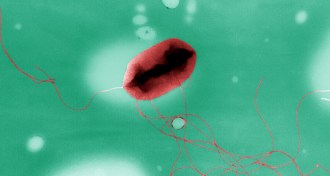 Microbes
MicrobesVaccines and gut microbes join forces to fight flu
Losing gut microbes weakens the protective ability of the flu vaccine in mice.
By Nsikan Akpan -
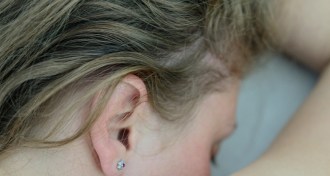 Neuroscience
NeuroscienceOur brains sort words as we sleep
Even after nodding off, a person’s brain correctly sorts words into categories, adding to the achievements of the sleeping brain.
-
 Earth
EarthWarming alone triggered Antarctic ice shelf collapse
Warming surface temperatures, not an unstable foundation, probably doomed Antarctica’s Larsen B ice shelf.
-
 Health & Medicine
Health & MedicineExperimental herpes drug outperforms first-line med
An experimental treatment for genital herpes suppresses the viral infection better than the standard drug, but animal tests raise concerns about side effects.
By Nathan Seppa -
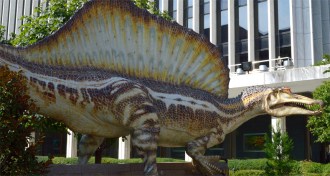 Paleontology
PaleontologyLost-and-found dinosaur thrived in water
Fossils pieced together through ridiculous luck reveal Spinosaurus to be the only known dinosaur adapted for regular ventures into water.
By Susan Milius